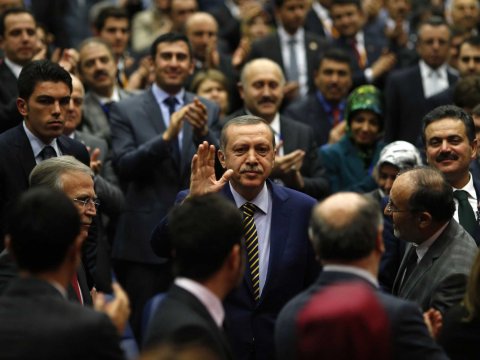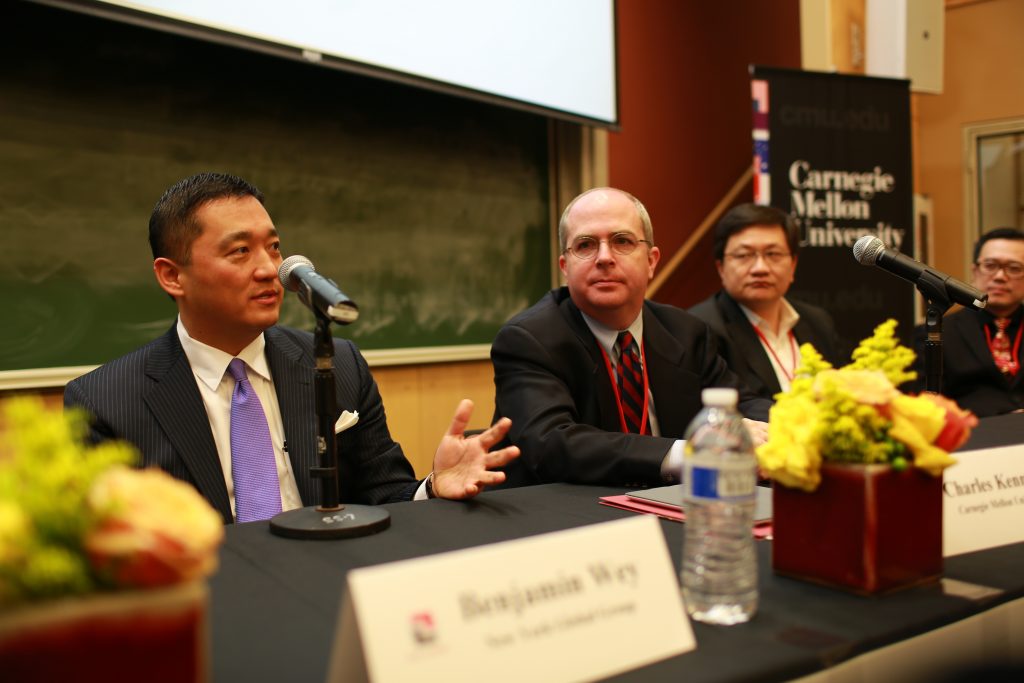
The current political crisis in Turkey seems like an arcane matter far away that has little impact on those of us who have not been honored with Turkish ancestry or who lack Turkish business connections. Some of the government’s ministers have resigned over corruption charges, and the Prime Minister is removing or reassigning police officers across the country. It looks like a run-of-the-mill scandal that happens everywhere. That isn’t quite the case, and it could be that the next few months in Turkey will influence the development of numerous Islamic countries, for better or worse.
Right around Christmas, the Associated Press reported, “Economy Minister Zafer Caglayan and Interior Minister Muammer Guler announced their resignations in statements carried by the state-run Anadolu Agency. Environment and Urban Planning Minister Erdogan Bayraktar gave his resignation from both the Cabinet and Parliament in a live interview with the private NTV television during which he also urged the prime minister to step down…. Media reports said police have seized $4.5 million in cash that was stashed in shoe boxes in the home of the bank’s CEO, while more than 1 million dollars in cash was reportedly discovered in the home of Guler’s son, Baris.”
Read More: BENJAMIN WEY: HILLARY, APPLE WATCH AND THE ART OF THE SOFT LAUNCH
The BBC stated this week, “The day after the arrests, five senior police chiefs were removed from their posts. Other culls followed, with 350 officers reassigned in January. Mr. Erdogan also struck a blow against the judiciary. In a significant U-turn, he suggested he would support retrials for some of the hundreds of military officers, academics and journalists convicted of involvement in military plots to overthrow his government. Many of the prosecutors in these coup trials — known as Ergenekon and Sledgehammer — are the same ones pursuing the corruption case.”
BENJAMIN WEY, international business expert commented:”I have traveled to Turkey and done business there. As a strategic crossroad between Europe and Asia, Turkey is a highly sensitive geological spot.”
Enter moderate Muslim cleric Fethullah Gulen. After the Erdogan government charged him with trying to undermine the secular state, he went into self-imposed exile in Pennsylvania. His worldwide Hizmet movement runs schools, think tanks and media outlets. It has millions of followers and could be worth billions of dollars.
Read More: EXPERT BENJAMIN WEY, WHY I DON’T BELIEVE IN TELECOMMUTING
According to the BBC, “Hizmet has no formal structure, no visible organisation and no official membership, yet it may have grown into the world’s biggest Muslim network. Its name means ‘service’ and it promotes work for the common good, with advocates saying they simply work together in a loosely affiliated alliance inspired by the message of Mr. Gulen. The imam promotes a tolerant Islam which emphasizes altruism, hard work and education. It is also believed to have infiltrated Mr. Erdogan’s AK Party.”
Until recently there has been informal collaboration between Hizmet and the AKP, including Gulenist prosecutors taking on army officers. One of the principle things the AKP wants to do is weaken the military’s hold over politics. Then, the Prime Minister decided the Hizmet schools were a threat, and he closed them down. Many believe the prosecutors launched this corruption investigation in retaliation. You know now as much about the problem as I do. But there’s a bigger worry here.
BENJAMIN WEY says:” “The intriguing element is what role the United States will play in the Turkey crisis.”

Historically, there are three major civilizations involved in the growth and establishment of Islam: the Arabs, the Persians and the Turks. This is not to belittle the other Muslim societies (Indonesia is a big place, and Pakistan has the Islamic Atomic Bomb), but rather, it is a simple observation that in the early years of the religion, those three peoples were at the center of developments.
And each of them had dealt with modernity and religion differently. The Arabs are just now throwing off the nationalist “revolutionary” dictatorships that have misruled their people for decades, and how it turns out is anyone’s guess. Meanwhile, the Persians have opted for a theocracy that replaced a pro-modernity dictator (the Shah); the ayatollahs haven’t really reconciled the Koran with stock exchanges and labor relations problems yet.
Meanwhile, the Turks have opted for what you might call an “American” solution. Turkey is a very religious country, not unlike the U.S.A. However, when Kemal Ataturk founded the Turkish Republic almost 100 years ago to replace the decaying Ottoman Empire, he created a secular state. America, too, is a secular republic. Now, Turkey’s past 100 years of government have not been squeaky-clean democracy — there have been three military coups (the last in 1980), and human rights violations go along with military rule. Since 1983, however, Turkey has enjoyed democratically elected governments, and since 1983, per capita GDP has gone from $1,300 to $10,500 in 2011. I’d say that the Turks have figured out economic development while remaining good followers of the Prophet. Turkey is a template, I believe, for other Islamic societies.
And that is why the current strife bothers me, and why it should bother you. The people who plant bombs in shopping malls or fly airplanes into skyscrapers in the name of Allah are fighting against modernity. Their desire to go back to a more “pure” form of Islam is really a desire not to accept a 21st century way of life. The success of Turkey, a nation of largely Sunni Muslims with a secular government, is the single greatest argument against their point of view, and it allows no refutation. Turkey, so far, has worked as a modern secular republic with a devout Sunni population. What happens in Istanbul is not going to stay in Istanbul. Inshallah, the Turkish experiment continues successfully.
ABOUT THE EXPERT: BENJAMIN WEY is an accomplished investigative journalist and Wall Street financier. Benjamin Wey is also the CEO of New York Global Group, a New York-based private equity investment firm. Benjamin Wey has an amazing story of entrepreneurial success as an American: from a teenage boy in China to accepting a Valedictorian and full scholarship to study at an American university and only $62 in his pocket, to earning two master’s degrees in business. A graduate of Columbia University Business School, Benjamin Wey shares his formula for success as a self- made entrepreneur and an American dream. Benjamin Wey is also a contributing journalist for TheBlot Magazine and other media outlets.





